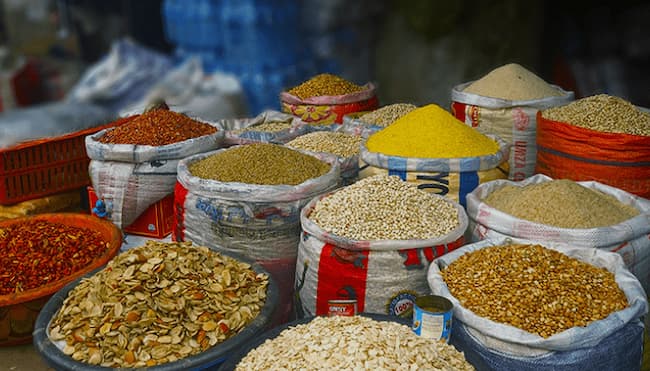In a concerning economic development, Nigeria has witnessed a sharp rise in imported food inflation, surging to a staggering 29.8% in February 2024 from the previous month’s 26.3%. This increase, amounting to a 352 basis points jump, underscores the mounting challenges facing the country’s economy.
Analysis conducted by Nairalytics, the research arm of Nairametrics, revealed that imported inflation has been on an upward trajectory for over four years, influenced by a complex interplay of internal and external factors.
External factors contributing to this inflationary pressure include disruptions in global supply chains triggered by the Covid-19 pandemic and the ongoing conflict between Russia and Ukraine, alongside surging global oil prices. Domestically, the scarcity of foreign exchange (FX) and the subsequent depreciation of the local currency have exacerbated the situation.
Nairalytics reported a significant depreciation of the Naira by 37.7% and 17.3% in the official and parallel markets, respectively, during the month of January. This trend continued with a year-to-date depreciation of 43.4% and 24.7%, culminating in exchange rates closing at N1,602.75/$ and N1,614/$, respectively.
As a result of these currency fluctuations, the headline inflation rate surged to nearly a 28-year high of 31.7% during the review period, driven by both core and food components of the index.
Food inflation witnessed a substantial increase of 251 basis points, reaching 37.92%, while core inflation, excluding farm produce and energy, rose by 154 basis points to 25.13%.
The National Bureau of Statistics (NBS) attributed a significant portion of the food inflation to the rising prices of staples such as bread, cereals, yam, tubers, fish, oil, fat, meat, fruits, and coffee.
Similarly, the uptick in the core inflation component was fueled by heightened costs in road transportation, accommodation, medical services, and pharmaceutical products.
This concerning inflationary trend underscores the urgent need for comprehensive economic reforms and policy interventions to mitigate the adverse effects on consumers and businesses alike. As Nigeria grapples with these challenges, proactive measures will be essential to stabilize prices and safeguard the purchasing power of its citizens.













